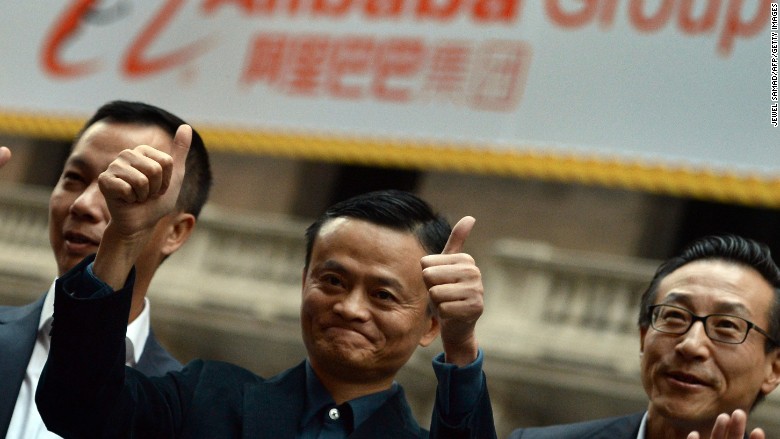
Alibaba knows it has a huge problem with fakes on its online shopping platforms. Now, the Chinese e-commerce giant is fighting back with new technology.
The company has introduced a digital tag to help consumers verify products, in partnership with Israeli startup Visualead.
The tags, called a "dotless visual code," are designed to embed a colorful image or logo that users can scan with Alibaba (BABA)'s mobile apps to get more information about the product, such as its origin, confirmation of authenticity, and any promotions, according to Alibaba.
The company aims to attach a unique code for each of the billions of products sold on its platforms.
Manufacturers can also track how many times, and from where, the codes were scanned. If a counterfeiter has tried to duplicate a unique code, "the original product manufacturer will be able to swiftly identify the approximate location of the counterfeiter and take the necessary action," said an Alibaba spokesperson.
Brands such as L'Oreal and Ferrero have already created millions of such codes for their products sold in China, according to Visualead.
Alibaba has long battled counterfeits on its Taobao and Tmall shopping sites.
"Counterfeits, in my opinion, are like a virus in business activities -- it will take time to entirely cure it," co-founder Jack Ma told reporters in Korea.
Related: Alibaba has a major counterfeit problem
Paris-based Kering, a luxury brands group that includes Gucci, filed a lawsuit last week in New York alleging Alibaba knowingly encourages, assists and profits from fakes. Last year, Kering filed a similar lawsuit, but withdrew it a few weeks after meeting with Alibaba.
The Hangzhou-based company has also come under fire from the Chinese government.
In January, Beijing released a scathing report that accused Alibaba of turning a blind eye to illegal activity, and failing to police its online marketplaces. The report was the result of a meeting in July 2014, though details weren't released until months later. A lawsuit is currently pending against Alibaba for failing to disclose to investors that it was meeting with the SAIC.
Visualead announced in January that Alibaba had bought a stake in the company.
--CNN's Kevin Wang contributed to this report

